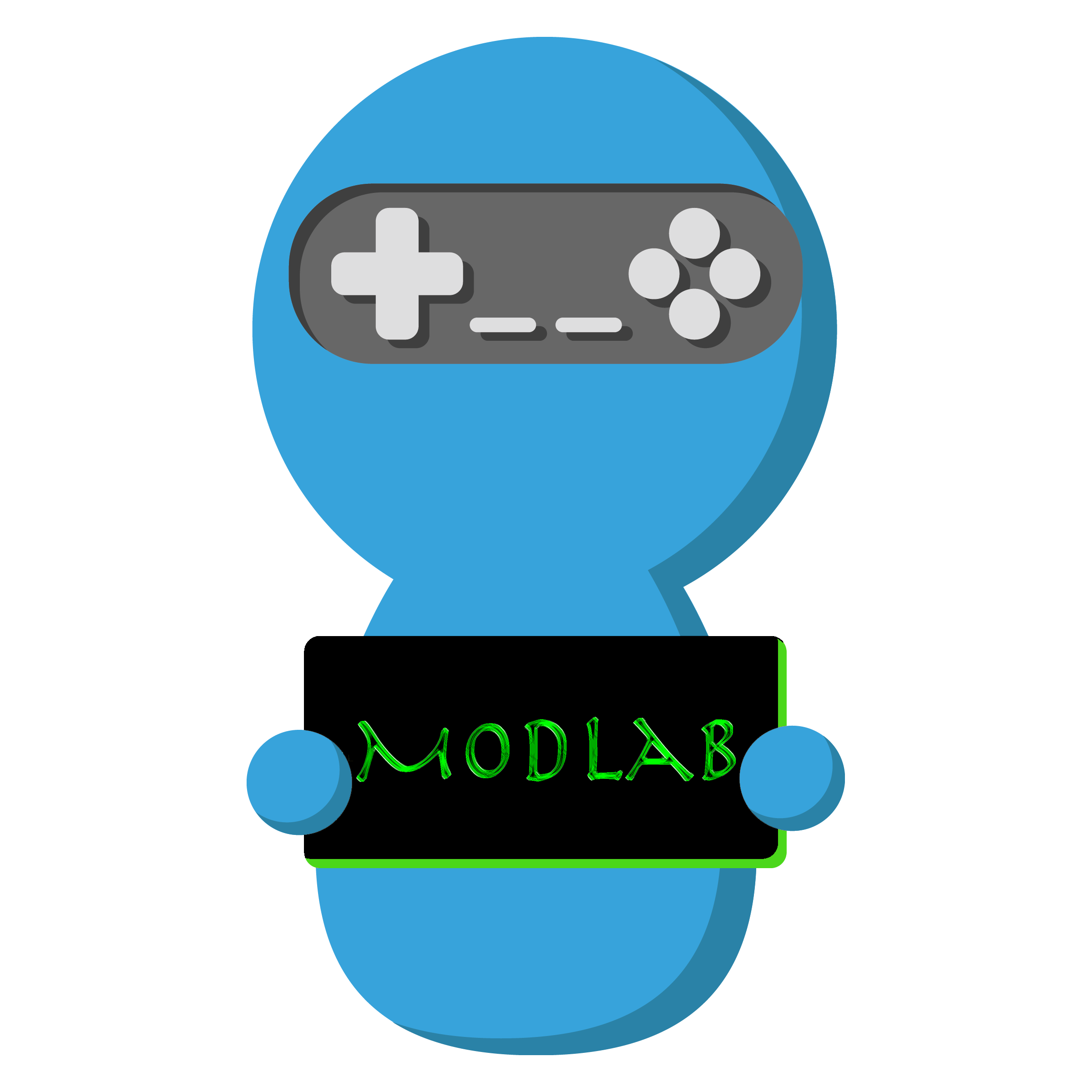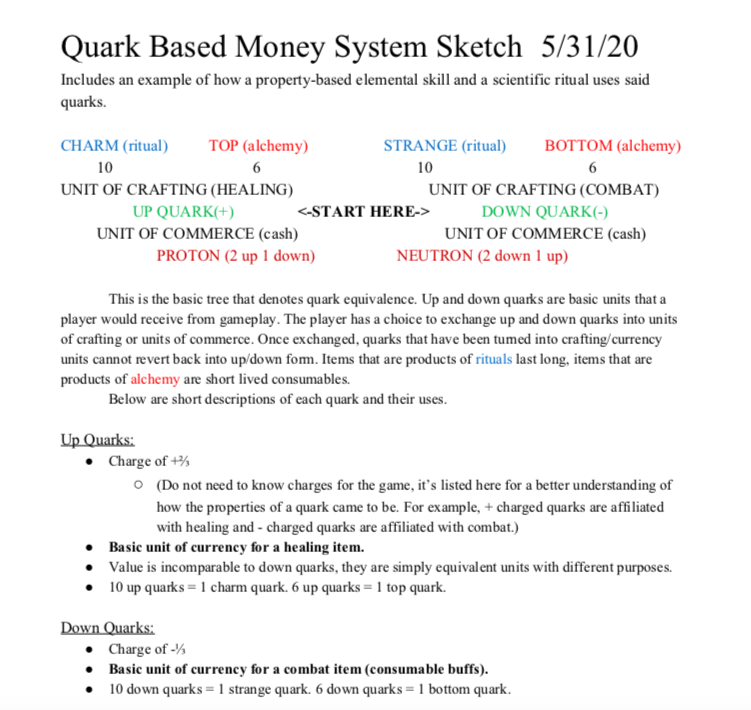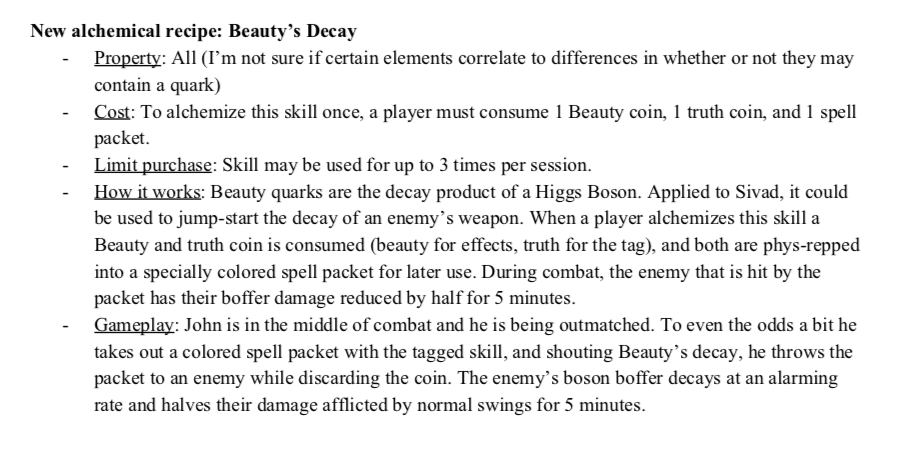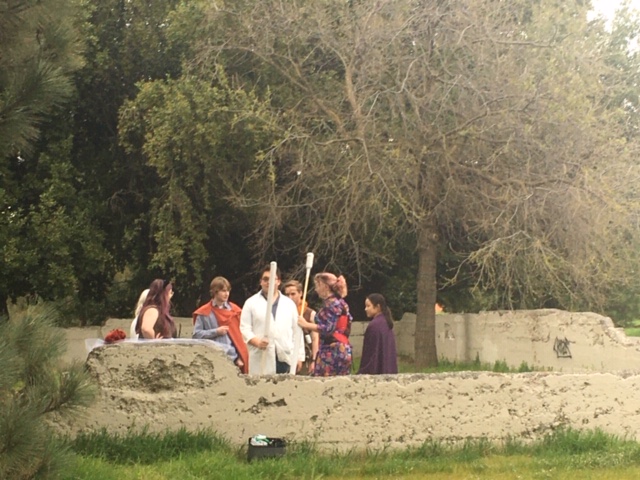
Sivad is a Live Action Role Play (larp) game set in a solarpunk universe that playfully re-articulates concepts from physics and chemistry. It is a “code-based” campaign boffer larp with aggregate code- and content-generation, offering participants the opportunity to practice RPG rulesmithing, worldbuilding, and basic larpwrighting techniques while gaining fluency in the game’s codebase.
This project is an exploration of how analog gamemaking exercises may be used to allow students to explore and critique processes for representing scientific data and information, offering a form of STS pedagogy that blends curriculum from the humanities, arts, social science, and STEM.
Sivad has been under development since summer 2019, and is currently undergoing playtesting and rules development. This work has included interdisciplinary efforts to grapple with new and emerging research in climate science, x-ray nanochemistry, microwave radiometry, and other technoscientific fields.
If you are interested in participating, or in attending a playtest, please reach out to the SIVAD project director S. Hayley Steele (shsteele@ucdavis.edu).
Download the Sivad Rulebook (coming soon)
Follow Sivad on Social Media:
– Flickr
Summer & Autumn 2019
Larp and ARG Development and Design Group
Graduate Researchers:
Samara Hayley Steele, MFA, PhD Student, Cultural Studies
Katherine Buse, PhD Candidate, English
Kaylani Juanita, MFA Student, Design
Iris Xie, MFA Student, Design
Principal Investigator: Dr. Colin Milburn
By developing interactive stories that blur the boundaries between what is real and what is imagined, this project has explored the use of analog games for representing scientific data, building STS and STEM pedagogy, and for grappling with new and emerging research in climate science, x-ray nanochemistry, microwave radiometry, and other technoscientific fields.
While the primary focus of this project was the research and development of Sivad, this investigation also included the creation of the games Realitycraft: An RPG Rulesmithing Game (2019) and Destination Wedding 2070 (2019), which served as proofs-of-concept for the methodologies of rulesmithing and data dramatization.
Autumn 2019
First Year Seminar (FRS 4, CRN 44522)
“Games for Science and Society: LARPs, ARGs, and Citizen Science”
Facilitator: Samara Hayley Steele, MFA
Instructor of Record: Dr. Colin Milburn
Live Action Role-Playing games (LARPs) and Alternate Reality Games (ARGs) combine interactive theater with storytelling, scavenger hunts, and puzzles to create immersive narratives that are played out in the real world. In this seminar, we studied the history of these two media forms, and we also got firsthand experience participating in and creating material for our own LARPs and ARGs. The course particularly focused on the application of LARPs and ARGs for dramatizing the social aspects of science and technology, and students were given the opportunity to playtest and experience games under development with the ModLab, including Sivad (2019-present) and What Happens in the Lab (2019), while creating material for these games, as well as designing a class ARG.

Winter 2020
“Data Dramatization through Analog Games” (STS 198)
Undergraduate Researchers:
Alisha Chan
Evelyn Chan
Zoe Fochs
Project Director: Samara Hayley Steele, MFA, PhD Student
Post-Graduate Researcher: Slater Kenney, MFA
Principal Investigator: Dr. Colin Milburn
This project engaged in developing social and codic structures to support Sivad, as well as larp gameplay and production activities. This work included emergent infrastructure building, such as the creation of a campus Larp Club, along with the emergence of Ugly Robot Studios. Participants gained pragmatic experience in larpwriting, gamerunning, and rulesmithing, while grappling with data representation and the dramatization of scientific concepts through codic larp rulesets.
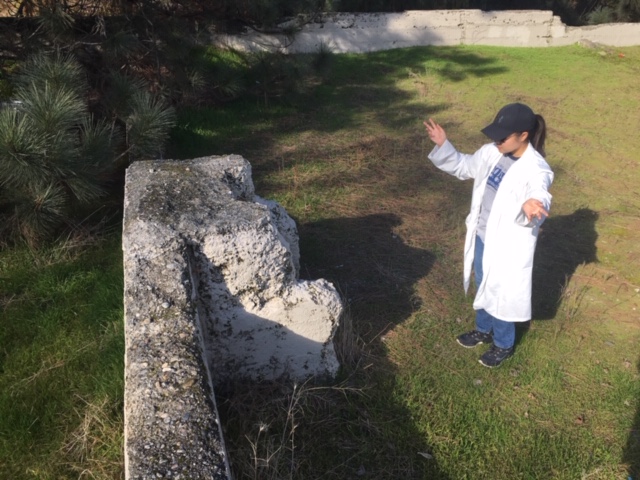
Undergraduate Researchers investigating campus structures for diegetic indicators. 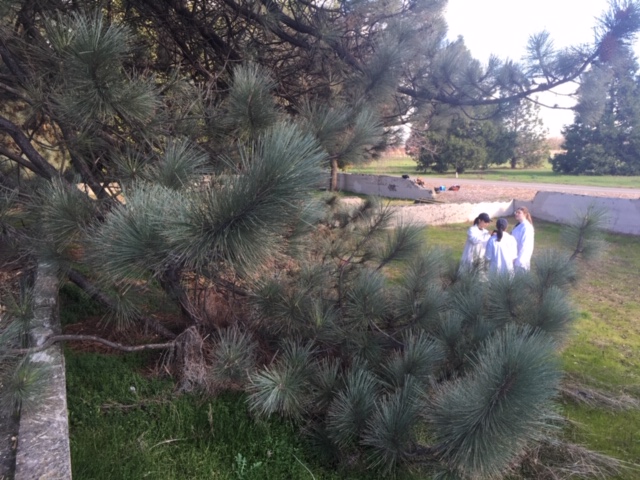
Undergraduate Researchers investigating campus structures for diegetic indicators. 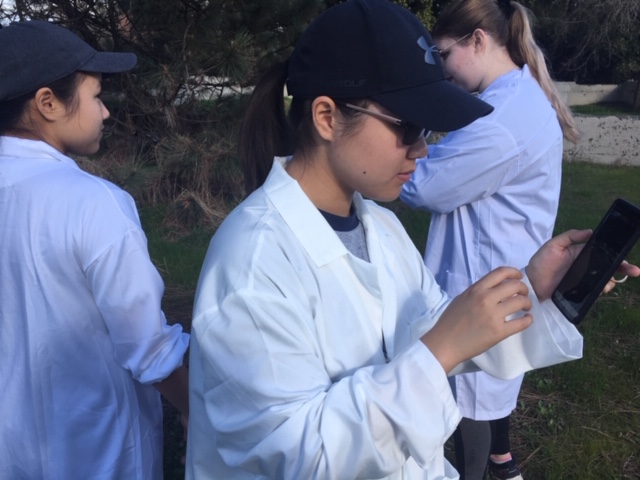
Undergraduate Researchers investigating campus structures for diegetic indicators.
Spring 2020
“Design Methodologies for Analog Games as STEM Pedagogy” (STS 198)
Undergraduate Researchers:
Alisha Chan
Evelyn Chan
Zoe Fochs
Nathan Green
Project Director: Samara Hayley Steele, MFA, PhD Student
Principal Investigator: Dr. Colin Milburn
This project engaged in developing and playtesting educational rulesmithing activities, with the Sivad gaming system as a context in which to create codic larp rules that illustrate concepts from physics and chemistry. Blurring the lines between game design and STEM learning, undergraduate game developers worked under the guidance of the project director to craft new rules for Sivad that illustrated concepts from physics and chemistry, which they defended in oral and written exercises. They likewise worked together to workshop their rules throughout the quarter, increasing their skills as game designers, while rules workshops likewise provided occasions to develop and exercise fluency in STEM concepts, boosting understandings of concepts from physics and chemistry at the group level. By having the development of a single, mutually-created STEM-based ruleset as the goal (rather than having students work on individual projects), the understanding of STEM concepts was incentivized on the collective level rather than merely on the individual level (a frame that might be compared to the structuring of incentives offered by cooperative board games), incentivizing student game developers to assist each other in increasing understanding of STEM concepts while likewise developing a STEM-based sociality. This project drew influence from Jospeh Dumit’s “Game Design as STS Research” (2017) and the educational games research of Theresa Horstman. Due to the COVID-19 pandemic, this project occurred entirely on Zoom, and while the online format prevented live-action playtests from occurring, it allowed an increased focus on peer workshopping and rules composition.
Below are some rulesmithing composition excerpts from the Final Portfolios of the undergraduate researchers:
